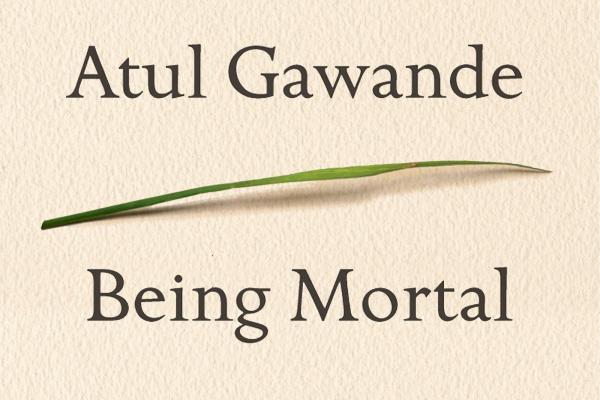EARLY IN Being Mortal, surgeon Atul Gawande tells the story of Joseph Lazaroff, a patient with incurable prostate cancer. His medical team pursued multiple treatments, including emergency radiation and surgery, but Lazaroff ultimately died. What most struck Gawande later was that he and the team avoided talking honestly about Lazaroff’s choices—even when they knew he couldn’t be cured.
“We could never bring ourselves to discuss the larger truth about his condition or the ultimate limits of our capabilities, let alone what might matter most to him as he neared the end of his life,” Gawande writes. “The chances that he could return to anything like the life he had even a few weeks earlier were zero. But admitting this and helping him cope with it seemed beyond us.”
Why is that? For one, Gawande’s medical training didn’t prepare him for dealing with frailty, aging, or dying, he writes. He and his peers were taught to “fix,” to heal people with expertise, tools, and tests. Like most doctors, he approached his patients’ challenges as medical problems to solve, whether they were the accumulations of old age or terminal illness.
But a decade into his practice, Gawande is arguing for a change. Being Mortal is a conversation about why and how. For all its triumphs, medicine doesn’t—and shouldn’t—hold all the answers when it comes to aging and death.
Gawande looks at aging and societal shifts over the last decades, particularly the development of nursing homes (hospitals needed a place to put elderly patients who had nowhere else to go) and their limitations—something he saw through the experience of his grandmother-in-law, Alice Hobson.
Hobson’s life in a nursing home was safe, but with little privacy or autonomy to make even basic decisions for herself, she felt trapped and insignificant. Despite declining health, she felt she had more to do and give, but no pathways existed to express those desires. It was as if she had stopped being fully human and merely occupied a body.
“We’ve succumbed to a belief that, once you lose your physical independence, a life of worth and freedom is simply not possible,” Gawande writes. What’s worse, no one “sit[s] down with you to figure out what living a life really means to you under the circumstances, let alone help[s] you make a home where that life becomes possible.”
There are bright spots—he visits Beacon Hill Village, a Boston program that creates neighborhood support for elderly people to stay in their homes. At NewBridge, also near Boston, residents have private rooms and come and go as they like; the facility shares land with an elementary school whose students are buddies and mentees of residents.
More hospitals, often led by palliative care specialists, are facilitating conversations like the one Gawande wished he’d had with Joseph Lazaroff. In LaCrosse, Wis., medical leaders launched a campaign in 1991 to get clinicians and patients to discuss end-of-life wishes. Over time, this resulted in more clarity for family members and clinicians about what patients really wanted.
Gawande’s thoughtful, compassionate book will benefit readers far beyond the medical profession. He’s honest about the gray areas of aging and dying—all the more reason to talk with our loved ones, though these are likely the most difficult conversations we’ll ever have.
But he also challenges his medical colleagues. Patients need doctors and nurses who will have hard conversations and help prepare them for what’s coming, he writes, but also to ask, “If time becomes short, what is most important to you?”
And then listen to the answer.

Got something to say about what you're reading? We value your feedback!
